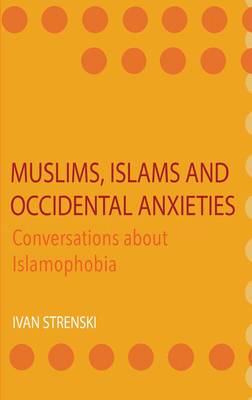
- Retrait gratuit dans votre magasin Club
- 7.000.000 titres dans notre catalogue
- Payer en toute sécurité
- Toujours un magasin près de chez vous
- Retrait gratuit dans votre magasin Club
- 7.000.0000 titres dans notre catalogue
- Payer en toute sécurité
- Toujours un magasin près de chez vous
Muslims, Islams and Occidental Anxieties
Conversations about Islamophobia
Ivan StrenskiDescription
Muslims, Islams and Occidental Anxietiesdeconstructs our common prejudices about both the compatibility and incompatibility of Muslim and Western civilizations. Rather than reinforcing the well-meant, but misinformed, opinion that the religions all fundamentally teach identical values, we identify what seem different distinctive Muslim "goods." Rather than offering the facile moral choice between an Islam either "all good" or "all bad," we argue the case for pluralism derived from Sir Isaiah Berlin. In many cases, Islam thus represents a distinctive system of alternative ethical and religious "goods" to those valued in the West. In other cases, differences will remain different and unresolved. Far from necessarily threatening Western moral and religious identity, we explore how the alternative "goods" Islam offers the West can enrich our notions of what constitutes "the good," even to the extent of reviving or enlivening certain Western religious practices.
Along with instructional guidelines for classroom use, the book in informed by the powerful and intellectually rigorous device of investigative, empathetic "dialogue" or "conversation," as articulated by MIT's Sherry Turkle and Oxford's Theodore Zeldin, respectively. This form of dialogue steers clear of the didactic mode and instead recovers the open models of philosophical dialogues pioneered by Plato, Socrates, and the "tolerant" Renaissance humanists, such as Erasmus and Jean Bodin.
Spécifications
Parties prenantes
- Auteur(s) :
- Editeur:
Contenu
- Nombre de pages :
- 290
- Langue:
- Anglais
Caractéristiques
- EAN:
- 9781871891836
- Date de parution :
- 16-02-22
- Format:
- Livre relié
- Format numérique:
- Genaaid
- Dimensions :
- 156 mm x 234 mm
- Poids :
- 621 g

Les avis
Nous publions uniquement les avis qui respectent les conditions requises. Consultez nos conditions pour les avis.






